 Living with the Qur’an
Living with the Qur’an
by lastprophet.info
The Holy Qur’an is a book that has deeply influenced humanity in the past five centuries; and with its revelation, it has honored the earth. This exalted book is a source of glory, prosperity and vitality for Muslims – the source of worldly bliss and spiritual restoration. The Qur’an, along with its revelation, has changed the course of history and has redefined the meaning of life and existence from its inception. The world, which was re-established along with the Qur’an, has been feeling this divine calling echo over the past 15 centuries.
The emergence of the Qur’an onto the historical scene through its direct associates, as evident from the lives of the first generations, is proof that its address has not been abandoned, but reaches out to all centuries and the universe through them.
Humanity, having been bound to academics and subjected to the beliefs of those who were misinformed, have given way to an emergency of a belief system based on idolatry. At the same time, some religious institutions have placed varying degrees of pressure on people; thus, the thoughts of man were cast into the darkness. Yet, the Holy Qur’an is the light and clarity that will bring people out of this darkness.
Also Read: School Bus Explosion in Pakistan Kills Five, Military Accuses India
The Holy Qur’an, which addresses nature and the essence of all things, in other words life itself, differs in this regard from other books that see man as an addressee from the outer realm. The Qur’an was able to change the course of history because it is life in and of itself; it is the essence of all things. Muslims throughout history never viewed the Qur’an as a written book. They felt its presence as though it was a living being.
The address, which began with Prophet Muhammad (pbuh)’s association with the angel Gabriel’s call to “read,” manifested itself in the realm of humanity through the Messenger of Allah and his companions, and through them was conveyed to mankind. The emergence of the Qur’an onto the historical scene through its direct associates, as evident from the lives of the first generations, is proof that its address has not been abandoned, but reaches out to all centuries and the universe through them.
For this reason, the Messenger of Allah was sent as a mercy to mankind and his calling was directed at, “Qaffatan lin-nasi,” meaning the whole of mankind. His inadvertent addressees are the generations that emerged over the years. There is a fine line that is highlighted here. When one examines the Qur’an, one sees that it is not addressed at one special group, as evident in such forms of addresses such as “Oh humanity! Oh believers! Oh disbelievers! And Oh Hypocrites!”
However, adjectives can emerge over a period of time and with different individuals. The purest and shortest expression of the universality of the Qur’an is evident in the observation that the Qur’an is directed at and addressed to qualities and adjectives.
Also Read: Half a Million People in Gaza on the Risk of Starvation: IPC
When the Qur’an, which is an address in text form, is transformed into an object of study, there seems always to be a sort of intellectual distance that is placed between ourselves and the Qur’an. However, the Qur’an has the omnipotence to close that gap under all circumstances; and the following du’a (supplication) is very effective to this end: “Allahummazayyina bi zeenatihil Qur’an, wa karrimna bi karamatil Qu’ran, wa sharrifna bi sharafatil Qur’an, we albisna bi hilatil Qur’an.” (“Oh Allah, adorn us with the Qur’an. Increase our beauty with the beauty of the Qur’an. Reinforce our eminence, honor and dignity with the Qur’an.
Increase our honor with the Qur’an. Garb us with the robe and shirt of the Qur’an.”) This du’a is a symbolic demonstration that the Qur’an is effective in all realms of life for Muslims. If today, we can speak of Islamic architecture, design, science or a common discourse from history, then for all of this we are indebted to the Qur’an. Ismail R. Faruqi has stated that the language of society’s and tribes have with time become shaped by the Qur’an. (Faruqi, Ismail R., The Cultural Atlas of Islam, g. 372) We see how Persian has become permeated with Islamic content and how Turkish transformed into a language called Ottoman and similarly how Indian languages underwent similar transformations.
As Ibn. Hazim has stated, Arabic was born again with the Qur’an and gained a new meaning. In this regard, a rebirth, and a new form of meaning took place through the Qur’an, and all languages with time became affected by it. Montgomery Watt, one of the important Orientalists of our time, made a significant observation, when he said, “Few books have exercised a wider or deeper influence upon the spirit of man than the Qur’an.” (M. Watt, Introduction to the Qur’an, pg. 13). Watt, as a non-Muslim and one who is aware of the objective reality, confessed his views regarding the deep affect of the Qur’an on the spirit and recollection of man.
The Qur’an is a book which frees the mind and the conscience of man; it saves man from becoming a slave to his own desires and instills the feeling of awe and admiration in mankind.
Also Read: Israeli Captive Says “Only a Deal Will Bring Us Home”
One of the basic qualities of the Qur’an is that it has an igniting effect. Our elders called this, “HusnulIqa.” HusnulIqa is the sort of rejuvenating quality in the conscience of man upon hearing the balance in its utterance and the depth of its meaning. Even though the human conscience doesn’t quite allow for the use of this term, the Holy Qur’an, if one were to use contemporary language, reveals a mental state that has creative thought and discovers innovations.
The Qur’an is a book which frees the mind and the conscience of man; it saves man from becoming a slave to his own desires and instills the feeling of awe and admiration in mankind. The awe felt by mankind grants the deepest sense of bliss in every aspect of life, from art and wisdom to existence, all at the same time.
This potential in every human being can only be realized when the revelation is properly understood. In this regard, the notion of comprehension is not something which should be seen as a mental exercise. If we are able to realize the ontological (having to do with the science of existence) purpose of revelation and are able to act in accordance with the requirements of this knowledge, then we will have attained a full and mature understanding. If one is not able to attain this, then there is still a level of understanding, however, it may not be the desired level. There is an emotional dimension of understanding as well.
When the Qur’an hits one from their heart, it hits them first and foremost through their emotions. Because the Qur’an’s calling to us at the Wahlay-i Ula, took place on the emotional level. But the real aim of the Qur’an has to do with the perception of mankind. The Qur’an doesn’t see the human being as a mere emotional creature; along with describing man as the most perfect of all creatures, the Qur’an sees the comprehension – which is the end result of its perfection — of man as its addressee and the mind and intellectual comprehension which meet the Qur’an, as being elevated.
Also Read: Al-Quds Brigades Seize Israeli Surveillance Drone Over Khan Younis
In that regard, there is emphasis in the Qur’an on the usage of the mind; the notions of cautiousness, contemplation of creation and recalling are underscored while those who don’t use their hearts and their minds are criticized. Again, beyond this comprehension, the point which completes comprehension and understanding beyond this perception is the manifestation of the message as behaviour.
Abdullah bin Mas’ood of the companions of the Prophet, defines the Holy Qur’an, saying: “Al Qur’ani ma’bdubatullah fil ardh.” (The Quran is Allah’s feasting table on earth.) (Darimi, Sunan, Fadail-ul-Qur’an, I/827). In this analogy which employs a metaphoric example, what is being emphasized is that, just as human beings strengthen themselves with nutrients, the Qur’an is a table which feeds the mind, spirit and heart of the human being, posessing the power and capability of influencing every one of the human molecules.
The Qur’an, which designs our life and spiritual makeup, is a guide that determines a person’s relations with Allah, the world and other human beings, as well as provides a gauge for what is normal.
The word “adab,” (roughly translated as manners), which comes from the same root as the concept of “ma’duba,” (inviting many types of people over for different food) is a clear reminder that the Qur’an presents us a value scale and moral range. The Qur’an, which designs our life and spiritual makeup, is a guide that determines a person’s relations with Allah, the world and other human beings, as well as provides a gauge for what is normal. The Qur’an, which teaches human beings to refine themselves in every aspect – even in the simplest of relations -, is a requirement of its normative quality.
Also Read: Hamas Expresses Readiness for Comprehensive Deal with Israel for Hostage Release
In this regard, in the dialogue taking place between Luqman (pbuh) and his son, human beings who walk the earth while stomping their feet on the ground, and putting their noses up in the air or walking in vain fashion is criticized. As can be understood from this point, if a heart which beats with an echo of the Qur’an can seize its message and change its lifestyle accordingly through its behaviour, then only in this case will a complete and mature actualization have taken place.
For this reason, we cannot reduce the understanding of the Qur’an to a mere academic activity. However, the understanding of the Qur’an is not independent of this academic activity. In addition, there is a type of communication, or contact that everyone will establish with the Qur’an based on their own comprehension, strength, and capacity. The Islamic poet Mehmet Akif Ersoy has shared how this contact must be through these succinct phrases:
“Ya açar nazmı celilin bakarız yaprağına,
Yahut üfler geçeriz bir ölünün toprağına.
İnmemiştir hele Kur’ân şunu hakkıyla bilin,
Ne mezarlıkta okunmak ne fal bakmak için.”
“We stare at the leaf of the nazmi-jaleel (beautiful world) which has blossomed Or we blow on the soil of the dead and keep on Know with due that the Qur’an was revealed Neither to be read by the graveside nor for the telling of fortunes.”
Also Read: Israel Reaffirms Total Blockade on Humanitarian Aid to Gaza Amid Global Outcry
Because Muslims have, for the past few centuries, lost their ability to produce new products and ideas and have lost ground in the race between nations, the late Mehmet Akif Ersoy has frequently brought up this subject in his poetry. The masses will once again be immersed in a feeling of ecstasy upon hearing the Qur’an; there is no objection to this here.
However, as emphasized in the verses, “Doğrudan doğruya Kur’ân’dan alarak ilhamı / Asrın idrakine söyletmeliyiz İslam’ı.”(Gaining inspiration directly from the Qur’an/We must extract Islam to the comprehension of the century), Ersoy is saying to let us carry the constructive, rejuvenating breath of Islam to life, meaning let’s present the Qur’an to the level of perception that humanity has reached today so that the Qur’an can touch life; because Ersoy is a complainant of the essence of that which is becoming lost.
Muslims are either going to put forth a new language, literature, esthetic or artistic presentation or rooted scientific theories stemming from the Qur’an, or they are going to renew the language, literature, art and science which emerged from the Qur’an and adapt it to today’s world before presenting it. This is the point to which Ersoy wants to direct us to. This has been the case for every Muslim civilization in history.
All books, which have been penned by oppositional authors, are limited to the realm of the human mind. And the human mind is bound and limited within itself. A mind that is not limited can only be presented to you by a supra-human source that has created man and that source is Allah the Almighty. The Qur’an will help open the congested mind of the human being, because “surely, The Quran which We have revealed to this Rasool guides towards the path which is most upright (and balanced) and announces to those who believe and do good actions that they shall have great recompense…” Surah Al-Isra (17):9
Also Read: Israeli Captive in Gaza Sends Emotional Plea to Netanyahu for His Release
(T/P3/R01)
Mi’raj Islamic News Agency (MINA)
Sources:
Also Read: Extremist Settlers Storm Al-Aqsa Mosque Under Heavy Israeli Police Protection
2. http://muslimvillage.com/





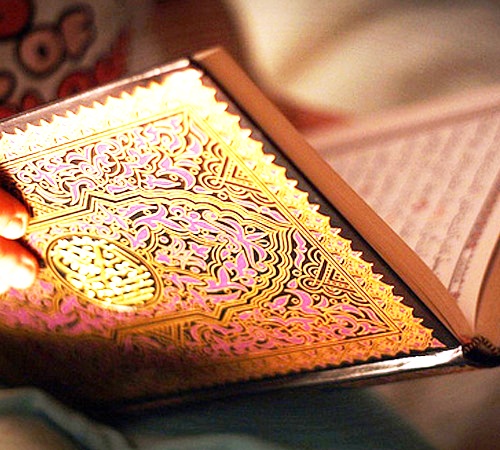

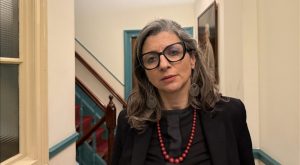

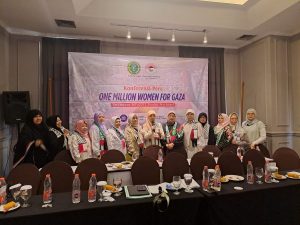



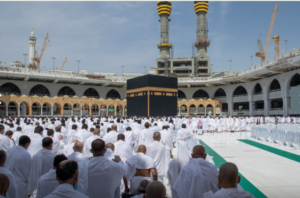
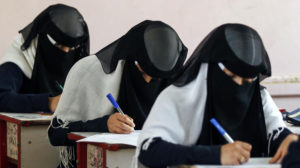


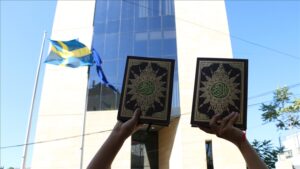








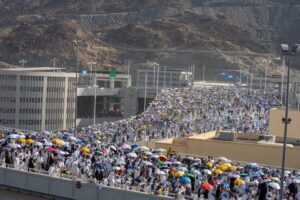

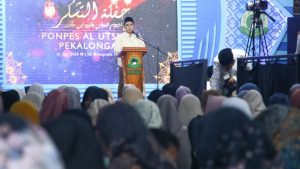






 Mina Indonesia
Mina Indonesia Mina Arabic
Mina Arabic